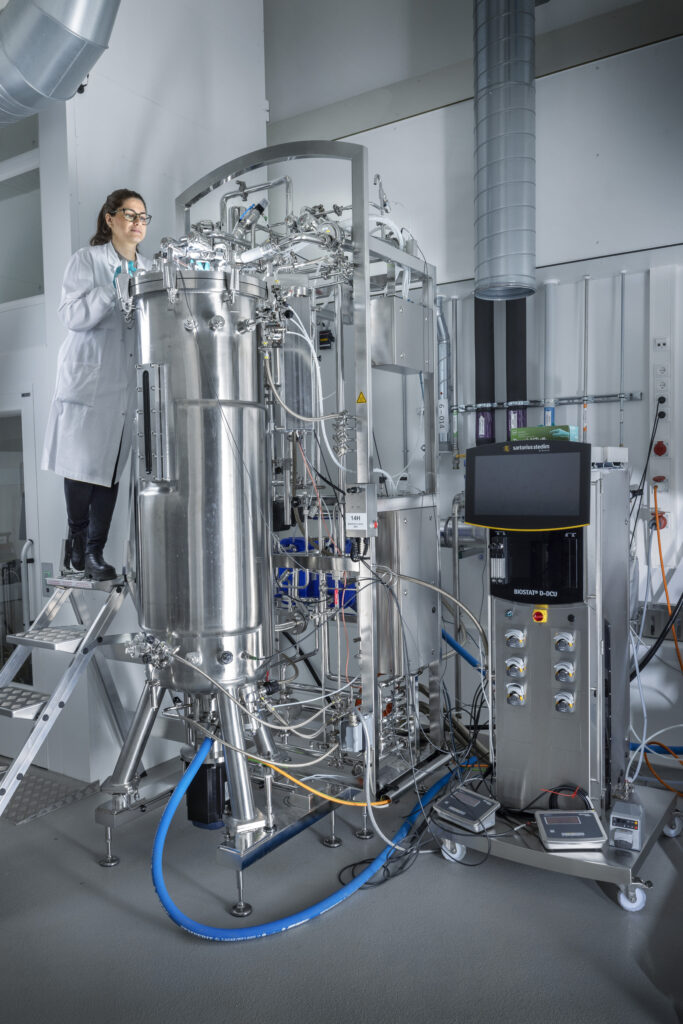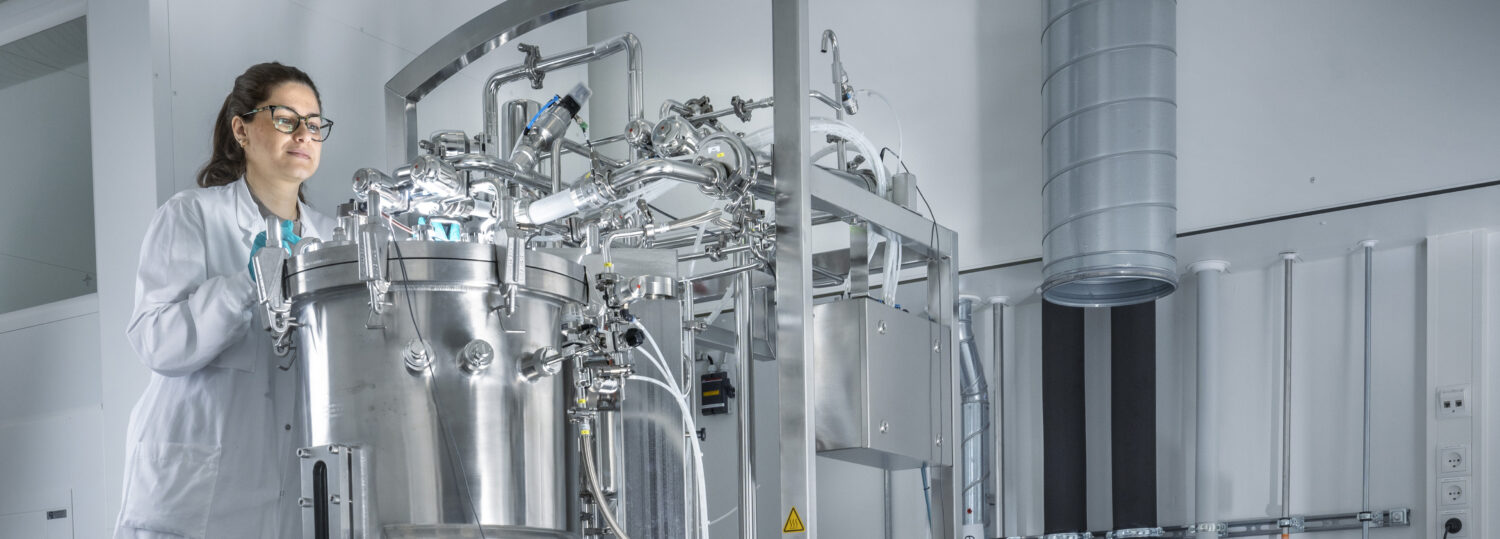
The AIM-Bio continuing education program is now underway at the Technical University of Denmark (DTU). A key component of the AIM-Bio program is developing continuing education opportunities for both students and industry professionals on topics relevant to the future of biomanufacturing. Each course is developed through a strong collaboration between experts from NC State’s Biomanufacturing Training and Education Center (BTEC) and DTU’s Department of Bioengineering and Department of Chemical and Biochemical Engineering.
As part of this effort, DTU is delivering six continuing education courses in 2022. During April and May, three new courses — described below — were offered to PhD students in the Department of Bioengineering and the Department of Chemical and Biochemical Engineering. In addition, three lifelong learning courses for industry professionals are scheduled in August and September.
Upstream Process Development – The Upstream Process Development course originated as a professional development course offered at BTEC and was transferred to DTU under the direction of José Luis Martinez Ruiz, associate professor in DTU’s Department of Bioengineering. The course offered participants an advanced, intensive education on the more complex aspects of bioprocess design, including critical process parameters, performance metrics, quality control and downstream considerations. Five participants, including both DTU PhD students and researchers, completed the course.
Automation and Control of Yeast Fermentation – The Automation and Control of Yeast Fermentation also originated as a BTEC professional development course and was transferred to DTU under the lead of Krist V. Gernaey, professor in DTU’s Department of Chemical Engineering. To adapt the course into a format suitable for doctoral students, Dr. Gernaey collaborated with Ulrich Krühne, associate professor; Carina Loureiro da Costa Lira Gargalo, postdoc; and Pedram Ramin, researcher, all within the Department of Chemical Engineering. Using a specific model organism (yeast), participants learned to set up a model consisting of a system of coupled differential equations. The resulting model was then applied to model simulations (scenario analysis), for sensitivity analysis, and as a data generator. Based on this model, the basics of process control, which included an overview of standard and advanced sensors, were introduced. Illustrations of how online data can be used for developing and simulating process control solutions were also presented. Finally, concepts for data handling were introduced, including algorithms for data classification. Seven PhD students and researchers from DTU participated in this first course offering.
Introduction to Chemical Modification of Protein Therapeutics – Introduction to Chemical Modification of Protein Therapeutics was adapted by John Woodley, professor of chemical engineering at DTU, from BTEC’s on-demand, online version of the course. Both the BTEC and DTU versions of this course focus on providing participants with an understanding of important modification methods applied to protein therapeutics. Participants have a unique opportunity to learn about the modification reaction, downstream processes, and analytical methods for the design and GMP manufacture of chemically modified biopharmaceuticals. Four PhD students from DTU and one participant from industry enrolled in DTU’s first offering of this course.
These three courses will be offered again in 2023, and the following professional development courses will be offered this August and September. Use the links below to learn more about upcoming courses.
